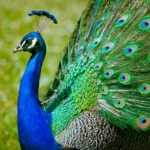While a pet squirrel might share your life for two decades, its wild cousins face a constant battle for survival, often living less than a year. This article delves into the fascinating world of squirrel lifespans, exploring the myriad factors that influence their longevity, from the perils of the wild to the comforts of captivity.
A Tale of Two Lives: Wild vs. Captive Squirrels
Have you ever paused to consider the contrasting realities of squirrels scampering in your backyard versus those residing in the wild? Their lifespans tell a compelling story of adaptation and survival. Wild squirrels, facing constant threats, average a lifespan of about six years, with some gray squirrels reaching a maximum of twelve years and fox squirrels potentially living up to eighteen. This starkly contrasts with pet squirrels, who, in their protected environments, can live for two decades or more. This discrepancy underscores the profound impact of environment on a squirrel’s journey through life.
The Wild Side: A Constant Struggle for Survival
Imagine a young squirrel navigating a world fraught with danger. Hawks, owls, foxes, and even domestic cats lurk, posing constant threats. Cars, a modern-day predator, claim countless lives each year. Food scarcity, especially during harsh winters or droughts, adds another layer of complexity to their struggle. Disease, too, plays a significant role, with outbreaks decimating populations. Habitat loss, driven by human development, further intensifies competition for resources and exposes squirrels to greater risks. Given these challenges, it’s a testament to their resilience that any wild squirrel reaches old age. Learn more about how human interaction affects wildlife.
The Perks of Domesticity: A Longer, Safer Life
Pet squirrels, on the other hand, experience a drastically different reality. Free from predators, with a steady supply of food and access to veterinary care, they live significantly longer, often reaching that impressive 20-year mark. This extended lifespan, however, raises ethical questions. Can we truly replicate the richness and stimulation of a squirrel’s natural habitat in captivity? A life of ease, while extending their years, might also limit their natural behaviors and the freedom to explore.
Species Spotlight: Lifespan Variations
Just as squirrel species vary in size and appearance, so do their lifespans. The common gray squirrel, often seen in urban parks and backyards, averages around six years in the wild, though some may reach twelve. Fox squirrels, larger and more adaptable, can live a bit longer, sometimes exceeding a decade, with some reaching nearly two decades in the wild. Flying squirrels, masters of the night sky, typically live for four to six years. Their unique lifestyle, gliding through the forest canopy, likely presents distinct challenges that affect their longevity.
| Squirrel Species | Average Wild Lifespan (Years) | Potential Captive Lifespan (Years) |
|---|---|---|
| Gray Squirrel | ~6 | Up to 12, potentially 20+ |
| Fox Squirrel | ~8-12 | Up to 20+ |
| Flying Squirrel | ~4-6 | Up to 10 |
These figures offer a general overview; actual lifespans can vary depending on environmental conditions and individual circumstances. Ongoing research continues to refine our understanding of these variations.
From Birth to Adulthood: A Squirrel’s Journey
A baby squirrel’s life begins in a litter of one to nine. In just six to seven weeks, these tiny creatures transform from helpless newborns to weaned youngsters, ready to leave the nest at around 42-49 days old. This rapid development is crucial for survival in a hostile world. However, infant and juvenile mortality remains high, a harsh reminder of the challenges they face.
The Human Factor: Our Impact on Squirrel Lives
Whether we realize it or not, humans exert a powerful influence on squirrel populations. Habitat destruction, driven by urban sprawl and deforestation, fragments their territories and restricts access to resources. Roads pose a constant threat, and even seemingly benevolent acts, like feeding squirrels, can have unintended consequences, potentially creating dependence and disrupting natural foraging behaviors. Understanding our role in their world is paramount for safeguarding their future. Discover ways to deter unwanted animals like skunks from your property.
Caring for Pet Squirrels: A Lifetime Commitment
Choosing to keep a squirrel as a pet entails significant responsibility. These aren’t domesticated animals; their wild instincts remain strong. They require specialized diets, spacious enclosures enriched with opportunities for climbing and exploration, and regular veterinary care. It’s crucial to consider the ethical implications, recognizing that captivity, while offering safety, also restricts their natural freedoms. A pet squirrel, accustomed to human care, stands little chance of surviving if released back into the wild. If you’re contemplating squirrel ownership, consider adopting from a rescue organization specializing in squirrel rehabilitation. They can provide valuable insights into their complex needs and ensure the animal receives proper care.
Unraveling the Mysteries: Ongoing Research
While our knowledge of squirrel lifespans continues to grow, much remains to be discovered. Ongoing research explores the intricate interplay of genetics, environmental toxins, and other factors that may influence their longevity. Some studies suggest regional variations in lifespan, highlighting the adaptability of these remarkable creatures. Scientists are also investigating the impact of human interaction on squirrel populations, from the effects of urbanization to the consequences of supplemental feeding. These efforts promise to deepen our understanding and inform conservation strategies for years to come. Explore the rich symbolism of blackbirds in different cultures.
- Medieval Houses: A Social History Through Architecture - April 29, 2025
- Unlock Senior Perks: How Old is a Senior Citizen?Complete Guide - April 29, 2025
- Happy Patients: Tech Solutions for Better Healthcare - April 29, 2025
















